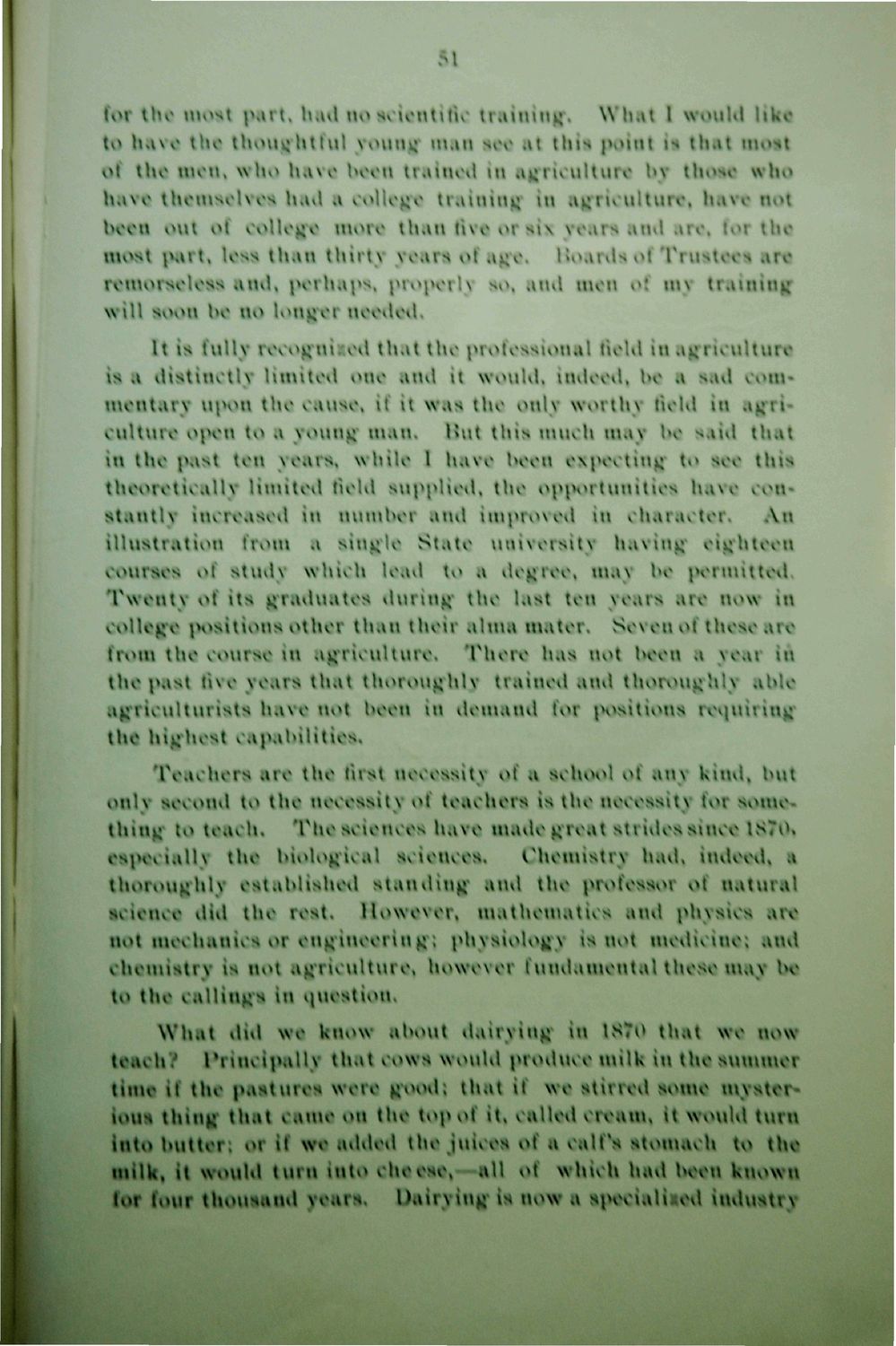| |
| |
Caption: Dedication - Ag Building
This is a reduced-resolution page image for fast online browsing.

EXTRACTED TEXT FROM PAGE:
I for the most part, had no scientific training What I would like to haw the thoughtful young matt tee tt this point it thtt most of the tttctt* who have been trained in agriculture by those who have themselves had ft college training in agriculture, have not been out of college move than live or six years ami are* for the most part, less than thirty years of a^w Hoards ol'Trustee* a re remorseless and, perhaps, properly so, ami men of my training will toon be no longer needed. It it fully reeogniied t hat t he professional field in agriculture it a distinctly United one atul it would, indeedi be t sad con* mentary upon the cause, if it was the only worthy field in agriculture open to a young man* But thit much may be said thtt in the past ten years, while I have been expecting to tee thit theoretically limited field supplied, the opportunities have con* statttly increased in number and improved in character. An illustration from a single State university having eighteen courses of study which lead to a degree* may he permitted. Twenty of its graduates during the last ten years are now in college positions other than their ahua mater, Se\ en ot these are from the courte in agriculture* There has not been it year in the pant five years that thoroughly trained and thoroughly ahle agriculturists have not been in demand for positions requiring the highest capabilities* Teachers are the first necessity of a school of any kind, but only second to the necessity of teachers it the necessity for something to teach* The sciences have made grett strides since 1870* especially the biologictl sciences* Chemittry hud, indeed* t thoroughly etttblithed tttndiug tnd the professor of natural science did the rest. However, mathematics and physics are not mechanics or engineering; physiology is not medicine; and chemistry it not agriculture* however fundamental these may be to the ctllittgt in question. What did we know about dairying in 1870 thtt we now teach? Principally that cows would produce milk in the summer time if the pastures were good; that if we stirred some mysterious thing thtt cume on the top of it, called cretin* it would turn into butter; or if we added the juices of t ctlft stomach to the milk, it would turn into cheese, -all of which had been known for four thousand years. Dairying it now a specialised industry
| |